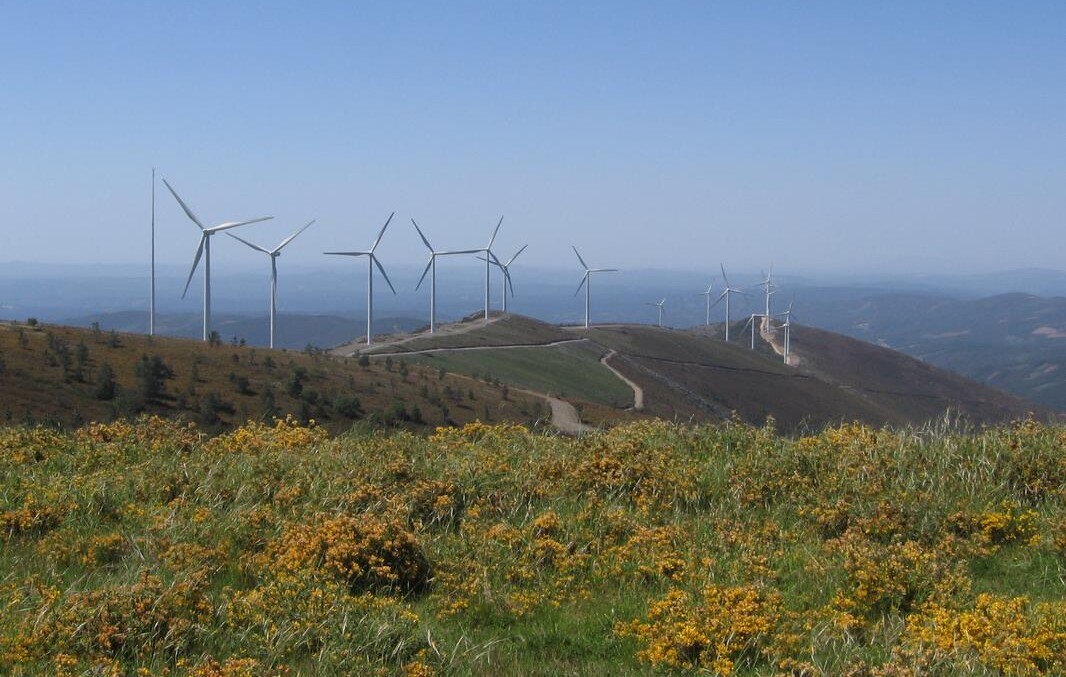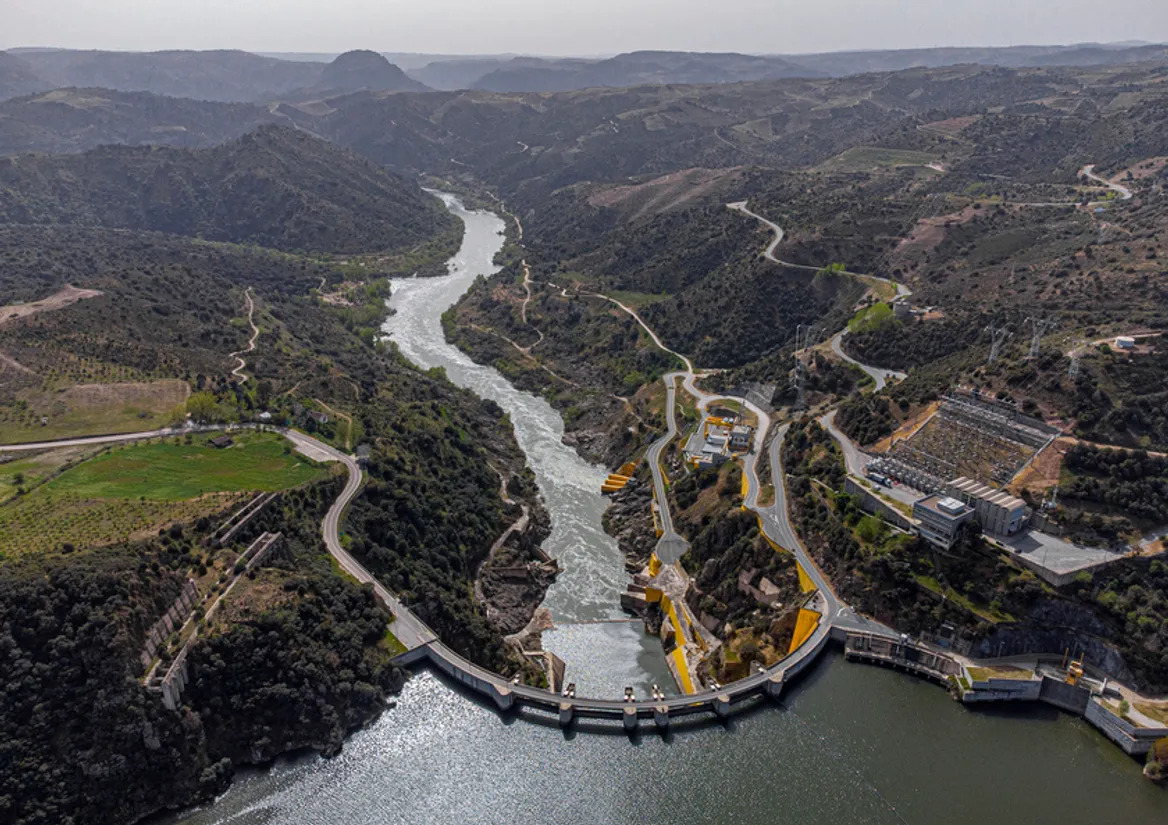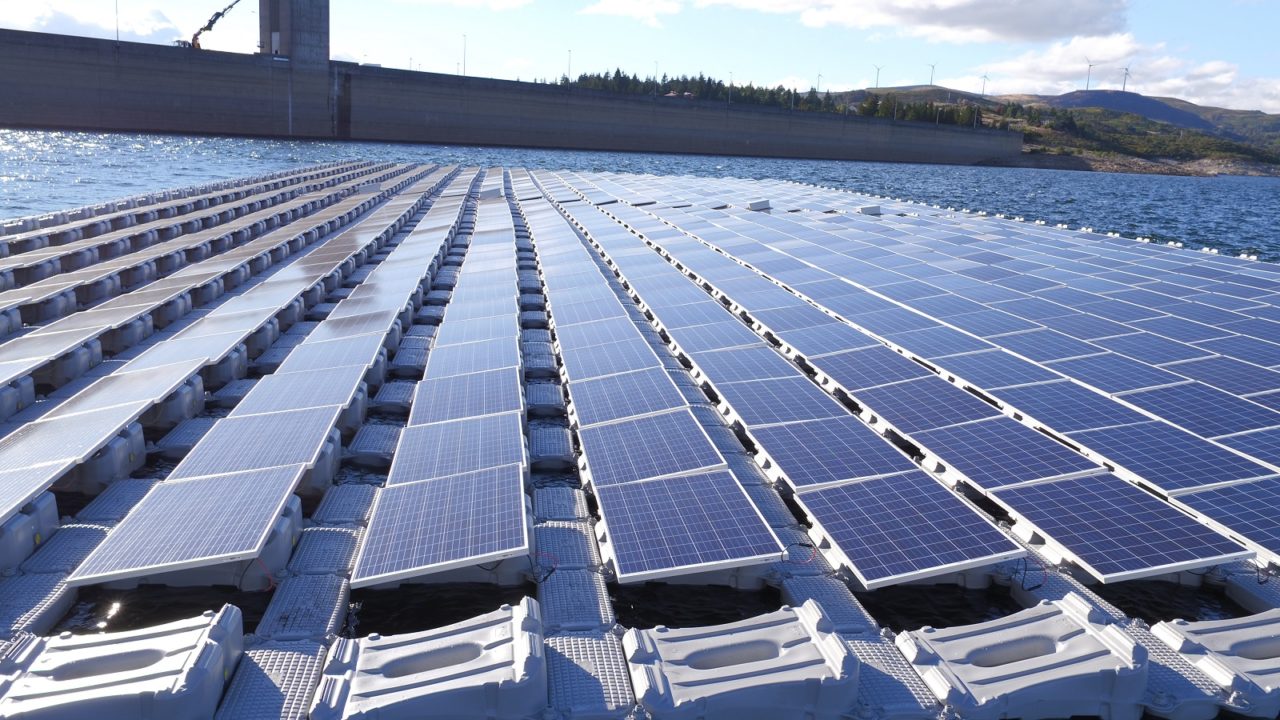Portugal Ran Entirely On Renewable Energy For 6 Days Straight
Discover how Portugal ran entirely on renewable energy for 6 days, setting a groundbreaking example in sustainable energy and highlighting the potential for global shifts towards renewable resources.
Author:Xander OddityReviewer:Dr. Felix ChaosphereDec 29, 202316.4K Shares231.3K Views

Portugal, leveraging its unique geography, has recently achieved a significant milestone in renewable energy as Portugal ran entirely on renewable energy for 6 daysin a row! Yes, you heard it right. The country, known for its extensive coastline, abundant sunshine, and strong winds, ran on 100% renewable energy for six consecutive days. This event is not only a testament to Portugal's natural advantages but also a promising sign for the future of renewable energy globally.
Portugal's Renewable Success
On October 27, Redes Energéticas Nacionais (REN), Portugal's largest energy company, reported an unprecedented event: the entire country's energy supply was generated by renewable sources, thanks to favorable wind and wave conditions. Initially expected to last a single day, this period of renewable energy generation extended to a full six days.
Hugo Costa, overseeing Portugal for EDP Renewables, reflected on this achievement: “The gas plants were there, waiting to dispatch energy, should it be needed. It was not, because the wind was blowing; it was raining a lot,” adding that “we were producing with a positive impact to the consumers because the prices have dropped dramatically, almost to zero.”
This feat is particularly noteworthy given Portugal's population of 10 million. During the six-day period, a total of 149 hours of renewable energy generation was recorded, with 95 hours seeing Portugal exporting excess energy to Spain. This aligns with an earlier achievement in March 2023, when renewable sources generated 103% of the country's total energy consumption.
Miguel Prado, a journalist covering Portugal’s energy sector, commented, “The key conclusion, in my opinion, is that it shows that the Portuguese grid is prepared for very high shares of renewable electricity and for its expected variation: We were able to manage both the sharp increase of hydro and wind production, and also the return to a lower share of renewables, when natural-gas power plants were requested again to supply some of the country’s demand.”
The commitment to renewable energy is part of Portugal's broader strategy to achieve net-zero carbon emissions by 2050. The nation is now focusing on initiatives such as investing in deepwater offshore wind farms, hoping to frequently surpass its six-day record in the future.
How Did Portugal Ran Entirely On Renewable Energy For 6 Days?
Between October 31 and November 6, Portugal's National Electric System operated entirely on wind, hydropower, and solar energy for 149 continuous hours. During this time, the country produced 1102 GWh of renewable energy, exceeding its demand of 840 GWh and enabling electricity export to Spain. This surpassed a similar record set in 2019, when the country ran on renewables for 131 hours.
Portugal's energy mix typically comprises about 60% renewables, with the rest primarily supplied by natural gas. However, plans are underway to eliminate the use of gas by 2040 and transition fully to renewable energy by 2045.
The recent weather conditions in Portugal, characterized by strong Atlantic gusts and heavy rainfall, turned out to be more than just a challenging weather episode. They played a crucial role in enabling the country to operate solely on wind, solar, and hydropower. Hugo Costa elaborated, “The gas plants were there, waiting to dispatch energy, should it be needed. It was not, because the wind was blowing; it was raining a lot.” He also noted the significant reduction in consumer energy prices as a result of this renewable energy surge.
Portugal's journey towards decarbonization involved a strategic shift away from fossil fuels, focusing on maximizing new renewable sources. The country, without nuclear capacity or plans to build any, had to rely heavily on developing its renewable energy infrastructure. Its last coal plants closed down in 2022, marking a pivotal shift towards a greener energy grid.
Miguel Prado remarked on the readiness of the Portuguese grid to handle high shares of renewable electricity, highlighting the successful management of the sharp increase in hydro and wind production and the seamless transition back to a mix including natural gas when needed.
To further its commitment to renewable energy and meet the Paris Agreement climate goals by 2050, Portugal has diversified its renewable resources. This approach involves blending wind, water, and solar energy and finding ways to make these sources more complementary. The country's power companies are pursuing additional offshore wind opportunities, expanding solar installations, and repowering older onshore wind projects to maximize the potential of the best locations.
Portugal's Six-Day Clean Energy Streak Record
Portugal's recent record-setting stretch of renewable energy production was made possible by its early investments in hydroelectric dams and onshore wind projects. The country's renewable energy infrastructure was robust enough to ensure that even during gray skies, the combined output of wind and hydroelectric power met the nation's energy needs.
During the six days of continuous renewable energy generation, Portugal not only met its domestic energy needs but also exported clean electricity to Spain for 95 consecutive hours. This achievement sets a new benchmark for the country, surpassing its previous record of 56 hours of gas-free power generation in 2021.
The decline in natural-gas use for electricity production in Portugal is also noteworthy. According to REN, gas use for electricity production fell 39% year-over-year from January to October, reaching its lowest level since 2006. This shift represents a tangible step towards grid decarbonization for Portugal.
Next Steps For Grid Decarbonization
Looking ahead, Portugal faces challenges in meeting its national target of 85% renewable energy by 2030. Issues such as slow permitting processes and balancing ecological impacts with cleaner power needs are some of the hurdles the country must overcome. However, initiatives like refurbishing old power plants and developing hybrid power plants combining wind and solar are underway to address these challenges.
Portugal's ambitious plan also extends to offshore wind projects, particularly in deep waters requiring floating turbines. The country's power sector is exploring this frontier, having already tested and operated floating turbines successfully.
The recent resignation of Prime Minister António Costa, due to a corruption investigation unrelated to the renewable energy sector, may delay some of Portugal's clean energy initiatives. However, the broad political consensus on the need for more clean energy remains strong.
Portugal's remarkable six-day renewable energy streak exemplifies a historic shift in energy sources. The country has demonstrated that with strategic planning, investment in renewable technologies, and a commitment to decarbonization, significant progress can be made in transitioning to a cleaner, more sustainable energy future.
Portugal Ran Entirely On Renewable Energy For 6 Days FAQs
How Did Portugal Achieve Running On Renewable Energy For Six Days?
Portugal capitalized on its unique geographical features, including a long coastline, abundant sunshine, and strong winds. The country's energy grid, predominantly composed of wind, solar, and hydroelectric power, was sufficient to meet its entire energy needs during this period.
What Types Of Renewable Energy Sources Were Used?
During the six-day period, Portugal relied on a combination of wind power, solar energy, and hydroelectric power. These sources were able to collectively generate enough electricity to power the entire country.
Was This The First Time Portugal Ran Entirely On Renewable Energy?
No, Portugal has previously achieved significant milestones in renewable energy, but this was a notable record for the longest duration - six consecutive days. Prior achievements included shorter periods of complete reliance on renewable energy.
What Role Did Weather Conditions Play In This Achievement?
The weather played a crucial role. Portugal experienced a combination of strong winds and significant rainfall, which boosted wind and hydroelectric power generation, while solar power remained a steady contributor.
How Did This Impact Energy Prices In Portugal?
According to Hugo Costa of EDP Renewables, the abundance of renewable energy led to a dramatic drop in energy prices, almost to zero, during this period. This was a positive impact for consumers in Portugal.
What Does This Mean For Portugal’s Energy Future?
This achievement underscores Portugal's potential to rely more heavily on renewable energy sources. It also aligns with the country's commitment to reducing carbon emissions and transitioning towards a more sustainable energy infrastructure.
Did Portugal Export Excess Energy During This Period?
Yes, Portugal exported excess electricity to Spain for a significant portion of the six-day period. This was possible because the renewable energy generated exceeded the country's domestic consumption needs.
How Is Portugal Planning To Continue Its Renewable Energy Development?
Portugal aims to further diversify its renewable energy sources and invest in new technologies, such as deepwater offshore wind farms. The goal is to steadily increase the capacity and reliability of renewable energy.
What Challenges Does Portugal Face In Sustaining Renewable Energy Usage?
Challenges include managing the variability of renewable sources, ensuring grid stability, and balancing ecological impacts with energy needs. Continued investment and innovation in energy storage and grid management technologies are crucial.
How Does This Achievement Compare Globally?
Portugal's success is significant on a globalscale, showcasing the potential for a country to run entirely on renewable energy for an extended period. It serves as an example for other nations pursuing similar renewable energy goals and highlights the importance of geographical advantages in achieving these aims.
Conclusion
Portugal's recent accomplishment, where it ran entirely on renewable energy for 6 days stands as a beacon of possibility and hope in the global shift towards sustainable energy. The successful integration of wind, solar, and hydroelectric power to meet the country's energy needs for nearly a week demonstrates a significant leap in the realm of renewable energy.
This achievement sets a precedent for countries worldwide, showing that with the right geographical conditions, investment in renewable infrastructure, and governmental support, a sustainable energy future is within reach. It also underscores the importance of diversifying energy sources to ensure a stable and reliable energy supply. As Portugal ran entirely on renewable energy for 6 days, it provided a real-world example of how nations can effectively combat climate change while meeting their energy demands, paving the way for a greener, more sustainable future.

Xander Oddity
Author
Xander Oddity, an eccentric and intrepid news reporter, is a master of unearthing the strange and bizarre. With an insatiable curiosity for the unconventional, Xander ventures into the depths of the unknown, fearlessly pursuing stories that defy conventional explanation. Armed with a vast reservoir of knowledge and experience in the realm of conspiracies, Xander is a seasoned investigator of the extraordinary.
Throughout his illustrious career, Xander has built a reputation for delving into the shadows of secrecy and unraveling the enigmatic. With an unyielding determination and an unwavering belief in the power of the bizarre, Xander strives to shed light on the unexplained and challenge the boundaries of conventional wisdom. In his pursuit of the truth, Xander continues to inspire others to question the world around them and embrace the unexpected.

Dr. Felix Chaosphere
Reviewer
Dr. Felix Chaosphere, a renowned and eccentric psychiatrist, is a master of unraveling the complexities of the human mind. With his wild and untamed hair, he embodies the essence of a brilliant but unconventional thinker. As a sexologist, he fearlessly delves into the depths of human desire and intimacy, unearthing hidden truths and challenging societal norms.
Beyond his professional expertise, Dr. Chaosphere is also a celebrated author, renowned for his provocative and thought-provoking literary works. His written words mirror the enigmatic nature of his persona, inviting readers to explore the labyrinthine corridors of the human psyche.
With his indomitable spirit and insatiable curiosity, Dr. Chaosphere continues to push boundaries, challenging society's preconceived notions and inspiring others to embrace their own inner tumult.
Latest Articles
Popular Articles

